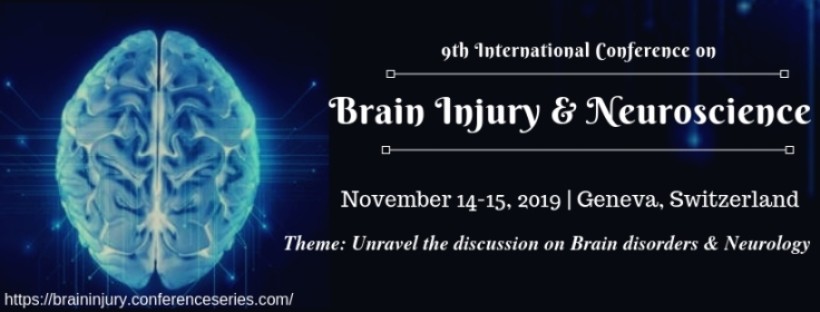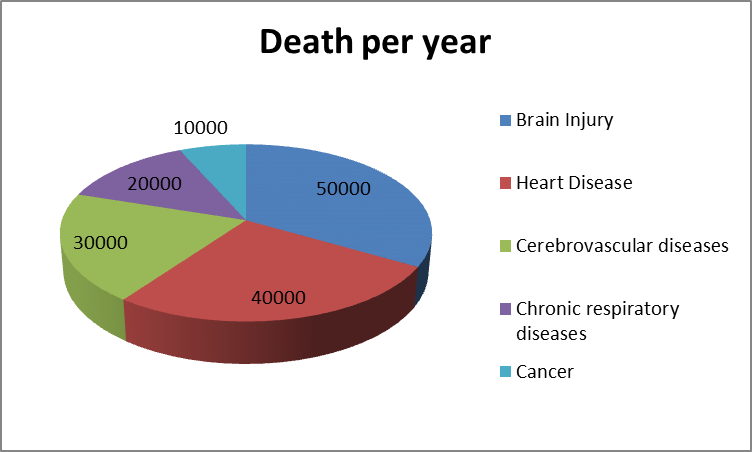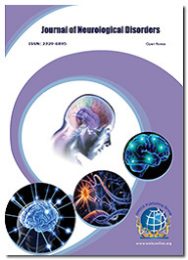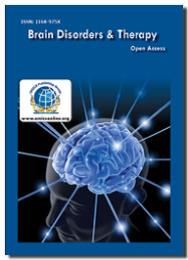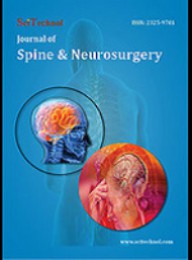Brain Injury 2020 Scientific Committee Members welcomes you to the official website of “9th International Conference on Brain Injury & Neuroscience".
Our International Congress will be holding the gatherings of the experts in the field of Brain injury, Neuroscience, Brain Disorders and Neurology held during November 14-15, 2019 at Geneva, Switzerland under the theme of “Unravel the discussion on Brain diseases and disorders".
We are also providing the CME Credits at our esteem Brain Injury conferences.
Our CME accredited World Leading Neuroscience Conference (Brain Injury 2019) is a prestigious event organized with a motivation to provide an excellent international platform for the academicians, researchers, industrial participants and budding students around the world to SHARE their research findings with the global experts.
Dear prospective participants, we are looking forward to represent your contribution and exploring novel research at our 9th International Conference on Brain Injury & Neuroscience being held at Geneva, Switzerland. On behalf of the organizing committee we heart fully welcome & promise a comfortable stay, great scientific content & pleasant memories to take home.
Come and enjoy the biggest global event of our specialty, full of scientific innovations, enriching moments with their peers and also treat this charming and hospitable city!
Warmest regards,
Organizing Committee
Brain Injury 2019
Brain Injury 2019 has been designed to direct Brain Injury & Neuroscience related scientific communities to incorporate sustainability in each and every aspect of Brain diseases and disorders sector and reveal the best techniques and treatments to stabilize the severely ill patients and improving the survival of Brain Injury victims worldwide.
Brain Injury
Brain Injury is a common term which is used to describe any trauma to the head or brain but most specifically to the brain itself. There are several types of head injuries may occur such as skull fractures, intracranial hemorrhage like subdural or epidural hematoma. Treatment of a head or brain injury depends mainly on the cause and the severity of the injury.
Neuroscience
Neuroscience (or neurobiology) is the scientific study of the nervous system. It is a multidisciplinary branch of biology that combines physiology, anatomy, molecular biology, developmental biology, cytology, mathematical modeling and psychology to understand the fundamental and emergent properties of neurons and neural circuits.
The scope of neuroscience has broadened over time to include different approaches used to study the nervous system at different scales and the techniques used by neuroscientists have expanded enormously, from molecular and cellular studies of individual neurons to imaging of sensory, motor and cognitive tasks in the brain.
-
Molecular and cellular neuroscience
-
Neural circuits and systems
-
Cognitive and behavioral neuroscience
-
Computational neuroscience
-
Translational research and medicine
Brain Disorders
Brain disorders are one of the most serious health problems facing our society .Brain disorders or Brain damage includes many conditions that can affect your brain. Those conditions that are caused by illness, genetics, or brain injury.
When the brain is damaged, it can affect many different things, such as memory, sensation, and functions. The brain is susceptible to different disorders that strike at every stage of our life. They are also the most mysterious of all diseases.
-
Aphasia
-
Brain Aneurysm
-
Sleep Disorders
-
Tuberous sclerosis
-
Narcolepsy
-
Migraine
Brain Stroke
Stroke is when there is a poor blood flow to the brain that results in cell death. There are two types of stroke 1) Ischemic stroke which is defined as lack of blood flow to the brain, 2) Hemorrhagic stroke which occurs due to bleeding. These result in part of the brain not functioning properly. Symptoms like inability to move or feel on one side of the body, feeling like the world is spinning, or loss of vision. If the symptoms last in less than one or two hours then it is known as a transient ischemic attack also known as mini-stroke. A hemorrhagic stroke associated with a severe headache. The symptoms of a stroke can be permanent.
Neurological & Neurodegenerative Disorders
Neurological disorders are the diseases of central and peripheral nervous system. Like brain, spinal cord, cranial nerves, peripheral nerves, nerve roots, autonomic nervous system, neuromuscular junction. Disorders such as epilepsy, Alzheimer disease, dementias, cerebrovascular diseases which includes stroke, migraine and headache disorders, multiple sclerosis, Parkinson's disease, neuroinfections, brain tumours, traumatic disorders of nervous system due to head trauma, and neurological disorders as a result of malnutrition.
Neurodegenerative disorder is the progressive loss of structure or function of the neurons, including the death of the neurons. Some of the neurodegenerative diseases are Multiple sclerosis, Parkinson's, Alzheimer's, Motor neuron diseases, and Huntington's occur as a result of neurodegenerative processes.
Central Nervous system Disorders
CNS disorders is any disorder that belongs to nervous system. Structural, biochemical or electrical abnormalities in brain, spinal cord and other nerves can result in a range of symptoms. Some symptoms like paralysis, loss of sensation, seizures, confusion, and pain.
World Health Organization estimated in the year 2006 that neurological disorders affect one billion people worldwide.
Market of CNS disorders are categorized into three segments, psychiatry, neurology and pain drugs market.. Among these the psychiatry segment has the largest share that accounting for more than 40% next followed by neurology and pain segment. As of year 2012, world health organization said that about 50 million people are suffering from epilepsy worldwide most of them belong to developing nations.
-
Addiction
-
Neurocognitive Disorders
-
CNS Neoplasia
-
Depression and Anxiety
-
Vascular Disorders
-
Structural Disorder
Spinal Cord disorders
Spinal Cord is main pathway for the communication between the brain and the rest of the body. It is a long, and fragile, tube like structure that extends downward from base of the brain.
Mostly pinal stenosis affects the people at age of 60 and also occur in younger people born with the abnormal spinal canal. Lumbar spinal stenosis, cervical spinal stenosis and thoracic spinal stenosis are the three types of spinal stenosis. Mostly 75% of the cases of spinal stenosis occur in the lower lumbar region.
-
Arachnoiditis
-
Central Cord Syndrome
-
Spinal Cord Tumor
-
LUPUS
-
Syringomyelia
Psychiatric Disorders
It is a mental disorder, or mental illness. The causes of mental disorders are unknown. Mental disorders are explained by the combination of behavior of the person , or feels, or thinks. This are associated with the particular regions or functions of the brain.
Globally Some common mental disorders include depression, that affects about 400 million, dementia which affects about 35 million, schizophrenia, that affects about 21 million people. WHO stated that 350 million populations is suffering with depression and mental disorders and approximately 24 million populations globally is affected by schizophrenia disorder. According to the survey conducted by CPA in the year 2012, about 77% of patient population receive psychotherapy are benefited or remained generalized anxiety disorder free after the treatment.
Peripheral Neuropathy
Peripheral Neuropathy is damage or disease that affects the nerves, which may be impair sensation, movement, gland or organ function, and other aspects of health, depending on type of nerve affected. Some common causes include systemic affect which causes diseases such as diabetes, vitamin deficiency, and medication. Peripheral neuropathy may be chronic or acute. Acute neuropathies demand for urgent diagnosis. Motor nerves, sensory nerves, or autonomic nerves may be affected. Peripheral neuropathies may be classified according to the type of nerve involved, or by the underlying cause.
-
Brachial neuritis
-
Cranial neuritis
-
Optic neuritis
-
Vestibular neuritis
-
Anticonvulsant
-
Narcotic treatment
Dementia:
Dementia is not a specific disease. It's an overall term that describes a group of symptoms associated with a decline in memory or other thinking skills severe enough to reduce a person's ability to perform everyday activities. Alzheimer's disease accounts for 60 to 80 percent of cases. Vascular dementia, which occurs after a stroke, is the second most common dementia type. But there are many other conditions that can cause symptoms of dementia, including some that are reversible, such as thyroid problems and vitamin deficiencies.
Dementia is often incorrectly referred to as "senility" or "senile dementia," which reflects the formerly widespread but incorrect belief that serious mental decline is a normal part of aging.
-
Vascular dementia
-
Dementia with Lewy bodies (DLB)
-
Cortical dementia
-
Mixed dementia
-
Diagnosis and Prognosis of Dementia
-
Animal Models for Dementia Research
-
Syphilis
Neuropsychiatry
Neuropsychiatry is the interface of psychiatry and neurology that investigates the link between mental and organic disease of the brain. It is a sub-category of Psychiatry with the main aim to obtain better understanding on the link between mind, body and behavior.
Neurosurgery:
Neurosurgery is a highly specialized medical field which focused on surgical treatment of brain and spine disorders. It is a complex surgical procedure which involves diagnosis, therapy, and rehabilitation of disorders affecting any part of the nervous system. The devices which are used to perform neurosurgeries are neurosurgical devices. Which are used to perform the surgeries like oncological neurosurgery, endovascular neurosurgery, and stereotactic neurosurgery. These surgeries are performed to treat neurological disorders like tumors, trauma, and brain injuries.

